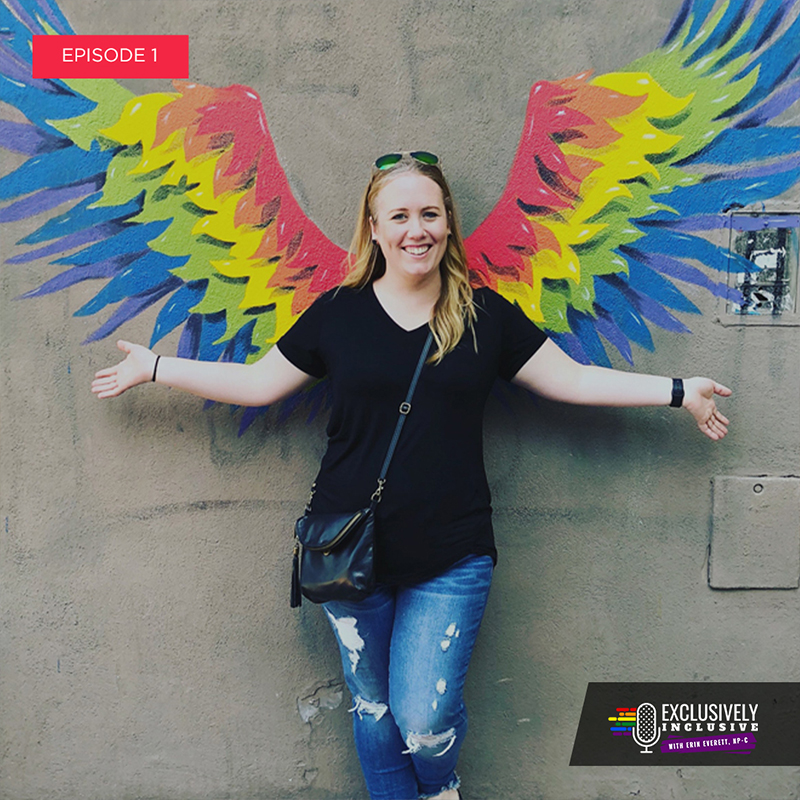
Episode 1
Welcome to the Podcast!
In Episode 1 of Exclusively Inclusive, host Erin Everett, NP-C, provides an overview of the new podcast and its emphasis on LGBTQ+ healthcare. Join Erin as she explains how the new podcast will play “Mythbusters” on topics related to LGBTQ+ healthcare, including HIV, STDs, Transgender HRT (hormone replacement therapy), sexual health, and general primary care.
Podcast: Play in new window | Download
Subscribe: RSS
About This Episode
Episode 1 Transcript
Welcome to the Podcast!
Erin Everett: Part of the purpose of this podcast was to play myth busters and make sure that people who identified as part of the LGBTQ community, gender diverse, or transgender patients had access to good quality information.
Speaker 2: Welcome to Exclusively Inclusive, your source for the latest in LGBTQIA healthcare, transgender HRT, and personal empowerment. Here’s your host, Erin Everett.
Erin Everett: Hey everybody, welcome to Exclusively Inclusive. I’m your host, Erin Everett, Nurse Practitioner. Thanks for taking the time to listen into the podcast. Today I just really wanted to introduce you to the new Podcast Exclusively Inclusive, and to let you know a little bit more about myself, more about the podcast and why I took the time to develop it and what to expect on future episodes.
Erin Everett: As I stated, I’m your host, Erin Everett, I’m a nurse practitioner. I’m based out of here in Atlanta, Georgia. I’ve been a nurse practitioner for about five years. However, I have been in the healthcare field for going on 11 years now.
Erin Everett: Not only am I certified by the AANP, which is a certifying board for nurse practitioners, I’m also certified in HIV medicine through the American Academy of HIV Medicine, and subspecialize in LGBTQ health and transgender medicine.
Erin Everett: The reason why I developed this podcast is working with the community, I was able to acknowledge very early on in my career the disparities for this particular population, and wanted to make sure that not just providers, but mainly patients had access to good quality health information.
Erin Everett: Even more recently in my career when I have delved into LGBTQ and transgender medicine more heavily, have I realized that people are traveling across state borders to come and receive care. One of the things I like to tell my patients that makes my job fun, but also challenging, is that I like to play myth busters.
Erin Everett: There’s a lot of misinformation out there online, in forums, popular forums like Reddit, Facebook, and other social circles. Part of the purpose of this podcast was to play myth busters and make sure that people who identified as part of the LGBTQ community, gender diverse, or transgender patients had access to good quality information.
Erin Everett: By no means is this meant to, or is designed to replace your actual healthcare provider relationship. Mainly the purpose is to act as a supplement, so that you can better be an advocate for yourself when accessing and obtaining healthcare.
Erin Everett: I wanted to give you a little bit of insight as to why I started this podcast, and what future episodes will look like and hopefully the information that they may contain. Why did I start the podcast? I started the podcast, because again, well as I mentioned briefly earlier, a lot of my patients come to me with questions, concern about their healthcare needs.
Erin Everett: They’ve read things online, they’ve heard things from different providers, who may not be as well versed in the community as I am. I play myth busters a lot. Rather than waiting for people to land in my lap and establish care, because let’s face it, not everybody can.
Erin Everett: I wanted to be able to reach patients who were outside my immediate geographical area. I want to reach you sitting there over in Boston, Massachusetts. I want to reach the person listening in, in Chicago, Illinois. I want to reach anybody who’s willing to take a minute to listen, so that they can get good healthcare information, not just from myself, but from other healthcare professionals in the field.
Erin Everett: I also wanted … My patients are craving information from other people who are on their own journey. What is their experience postoperatively after gender reassignment surgery? What is your post-op experience after facial feminization surgery?
Erin Everett: Those types of things. People are craving that knowledge, and they don’t always have access to the social networks to give them that good information. My sole intent and purpose for this podcast was to make good quality information accessible to anybody willing to dial in.
Erin Everett: That also brushed on what the future topics may include, such as I plan on bringing in mental health care providers to talk about … Say you’re not ready for hormones, but you’re ready to talk to someone about your dysphoria.
Erin Everett: What does that look like? I mean, one of my most close colleagues who’s a mental health care provider also specializes in sexual therapy for both traditional and nontraditional couples. What is sex like after surgery? What is sex life before surgery? What’s sex like when I have hormones on board?
Erin Everett: What does it mean to have these interpersonal relationships with other people and how do I navigate that? What future losses could I experience by living my true life, by living my true self and letting people know who my true self is?
Erin Everett: Also known as coming out. Depending on who you talk to in the community, both of those terms are interchangeable. We have a awesome mental healthcare provider who’s going to be on the future shows to talk about what that process might look like for you.
Erin Everett: I also plan to bring in other experts from the urology field to talk about, okay, what’s life like after orchiectomy? What’s the process of getting a therapeutic orchiectomy? Will I be able to urinate through my new phallus?
Erin Everett: All those types of things, so I plan on reaching out to a lot of the local specialists, and even some people who aren’t local who have a lot of information that the community could gain from, to talk about what their sub specialties are, and also address any questions.
Erin Everett: If anybody wants to email me any questions or topics that they’re craving to learn more about, you can email me at erin@exclusivelyinclusivepodcast.com. Again, the information is erin@exclusivelyinclusivepodcast.com. You can email your questions and concerns and I’ll do my best to monitor that and make sure that the most common requests are included in the podcast topics, so that people are getting what they need out of my show.
Erin Everett: That is the whole point. I’m here for the community. I am a strong ally, and I want to make sure that people can dial in and really leave feeling like they learned something and that they felt supported in their lifestyle.
Erin Everett: Whether it’s your sexual identity, or your gender diversity. Whatever it may be, I want people to be able to tune in and relate and get some good quality information. To give you a little bit more backstory on myself, I entered the world of nursing in 2009.
Erin Everett: However, I started my collegiate career at Northern Illinois University in DeKalb, Illinois. I originally went on the pursuit of a psychology degree. I’ve always wanted to work with people and have a science based career.
Erin Everett: However, after much soul searching, psychology just wasn’t going to be it for me. After deciding that criminal psychology wasn’t going to fulfill my needs on a more interpersonal level, I decided to go on and pursue a nursing career, which I also did at Northern Illinois University.
Erin Everett: After pursuing my career and completing that, I graduated in 2009, not only with a bachelor of science in psychology, but also a bachelor of science in nursing. At that time, my husband and I, we had just gotten married.
Erin Everett: I knew I wanted to move to Atlanta, because I’m originally from Australia. Let’s face it, I was living in a suburb of Chicago, Illinois. The weather was not ideal. However, I do love Chicago people and their culture.
Erin Everett: Shortly after graduating, we headed south. At that time, it was a time of the great recession. Obama had just taken presidency. The job market was tight, even for nurses, which if anybody knows anything about nursing, it’s always grossly understaffed.
Erin Everett: They’re always looking for more nurses, but for some reason, of course, when I got out of school, it was very challenging to find a job. After hunting down, I had looked at a lot of different healthcare systems in Atlanta and had gotten a lot of denials, because they had shut down the new residency programs.
Erin Everett: I decided to strap on a suit, take my resume, and walk up to Grady Healthcare. Grady Healthcare is a massive healthcare system in Atlanta. This information will become more relative as I tell you more about myself. It is a massive healthcare system that primarily serves people of DeKalb and Fulton counties, and mostly the underserved and lower socioeconomic status population.
Erin Everett: When I walked up there, the health recruiter was very impressed with my approach, which was great. I had an opportunity to either work for a medical surgical unit or an oncology unit. After interviewing with both, I just landed on the medical surgical unit, which ended up being a great learning experience.
Erin Everett: It was extremely challenging. The population was challenging. The staffing issues were challenging. However, that was my first real exposure to HIV. I had learned about HIV in school. I had heard about HIV. I had not known anybody personally to my knowledge at that time, anybody living with HIV.
Erin Everett: My experience was purely in textbooks really until I started working there. While working there, I felt like I was really on the front lines of the HIV epidemic in Atlanta, which to me was shocking, because it was not something that people talked about, especially where I was from and especially being from Australia.
Erin Everett: When I moved from Australia, I was only 15. I moved straight to Chicago. It wasn’t something that I was aware of, but however, I had been thrown into it full force at Grady Healthcare system. It was an amazing privilege to be able to work with those clients and also extremely humbling.
Erin Everett: I felt very fortunate every day when I left that facility, that not only I helped somebody, but also that I was not in a similar situation myself. After being able to connect with those patients and help them on a very personal level, and granted these patients were extremely ill.
Erin Everett: A lot of the patients that I encountered were also in end stage AIDS, which in future podcast we’ll talk about what all that means. They were very sick, and so that is when I grew a passion for HIV. I have always had a heart for the LGBTQ community from a young age.
Erin Everett: I’ve had friends a part of the community and have always wanted to be an advocate and an ally for them. I’ve been a very strong ally since I can remember. After doing that, I had moved on to a different healthcare system.
Erin Everett: I’d always wanted to go back to school. I always wanted to advance my career and become a nurse practitioner. I always felt that I wanted to be more of a decision maker in people’s healthcare needs, rather than an executer, which is what nurses tend to be.
Erin Everett: They’re not the ones writing the orders, they’re executing the orders, and they’re a very crucial role in health care. However, I knew I wanted to be more of a decision maker. I would have gone to medical school. However, it just wasn’t something that was encouraged or talked about as I was growing up.
Erin Everett: I didn’t even consider it an option for myself at the time. Not to say that being a nurse practitioner is a lesser degree than an MD, it’s just different. I’m very fortunate that I did end up taking this route, because nurses have a lot to offer as primary care providers and direct healthcare providers aside from those working in healthcare systems as registered nurses.
Erin Everett: After pursuing my degree and while I was pursuing my degree, I was also growing a family. Currently my children are nine and four. When I first started out in my master’s track, my daughter was only two years old. I was working full time. I was being a full time mom, and also doing full time master’s school to become a healthcare provider.
Erin Everett: It was a very tumultuous time. It was very busy. My husband was also starting his own small business. Needless to say, we were nose to the ground for several years. Towards the end of my graduate degree, because I guess I figured I wasn’t busy enough, I decided to get pregnant with my son.
Erin Everett: It was very much planned, and to this day I don’t regret it. He’s a huge joy in my life. However, just to let you know just how dang busy I was. My son was born and I’m a planner. I definitely planned this. I knew that I wanted to have him and I got lucky in that regard.
Erin Everett: I knew I wanted to have him shortly after being certified as a nurse practitioner, because I didn’t want to get a new job and then have to go out on maternity leave. I also didn’t want to have to take my boards with a newborn.
Erin Everett: Lucky for me, it worked out. He was born two weeks after I was certified as a nurse practitioner. While I was on my maternity leave with him, I started the job hunt. I was currently at the time working at Piedmont Healthcare Systems for the gastroenterology lab and loved my role.
Erin Everett: Thankfully for them, they were family, so I was able to work for them as needed. In the meantime, I was on the pursuit of a full time job as a primary care nurse practitioner. I definitely wanted to work in the HIV field.
Erin Everett: I also wanted to work with the LGBTQ population. Well, long story short, after several different interviews with job opportunities that weren’t going to work out, I fell upon a different local clinic where I was fortunate enough to get a job with one of my now very good friends, but also at the time very fierce colleague in Michelle Sariev.
Erin Everett: She was able to be a great mentor for me. I learned a lot at that clinic, about not only HIV medicine, but also transgender medicine and more specifically LGBTQ care and tailoring the needs to their primary healthcare needs, their sexual health care needs and just being sensitive and offering a safe space for them to receive care.
Erin Everett: After working at that clinic for about a year, I met Dr. Joseph Smiddy who I currently collaborate and work with directly. I currently work at Druid Hills Primary Care, which is right in Atlanta. I have been collaborating and working with him for almost three years now and we get along great.
Erin Everett: I wasn’t necessarily actively seeking new employment when I met him. However, after meeting him and having the same goals and the same family core values and the same values about patients and everything, it was a no brainer for me.
Erin Everett: I am very comfortable at that practice. Since joining that practice, I have been able to grow the patient population and advertise my services for LGBTQ care and HIV medicine since I’m certified and specialized in delivering that type of care, which has just been so fun, so fun.
Erin Everett: When I first started with him, he was flying solo for 20 something years, and so he brought on me. He knew he wanted a nurse practitioner. He had been looking for about, I think he tells me five years. Like I said, it just made sense when we met.
Erin Everett: He had the patient population, but I wasn’t as busy until we started marketing more for the types of clients that I wanted to see. Now I have helped exponentially grow that practice. I’m very busy there, and my patients are what get me out of bed in the morning and get me eager and ready for another day.
Erin Everett: I thoroughly enjoy what I do, and I’m continuing to accept new patients. I see a lot of new HRT patients, which would be Hormone Replacement Therapy for transgender medicine and a lot of new HIV patients, which is not necessarily new HIV diagnoses, but new to establish care with me.
Erin Everett: However, when all said and done, we still see run of the mill primary care, cold, sniffles, diabetes, we do everything there. It’s really a perfect mix for me. Thanks for taking the time to listen and learn more a little bit about me, a little bit more about what the podcast is and what goals we have.
Erin Everett: Like I said before, I currently practice out of Druid Hills Primary Care here in Atlanta, Georgia. Collaborate with Dr. Joseph Smiddy. If you’re local and you’re looking to establish care, please feel free to contact us and I would be happy.
Erin Everett: I’m still accepting new patients and am happy to be available to take care of the needs of anybody in the community. If you want to learn even more about me, please feel free to check out my website, erineverettnp.com.
Erin Everett: That is erineverettnp.com. I also have a Facebook and Twitter account along with an Instagram account. My Facebook account is facebook.com/exclusivelyinclusive. My Twitter handle is twitter @InclusiveCast.
Erin Everett: You can look me up on Instagram at instagram.com/exclusivelyinclusivepodcast. I cannot wait to hear what questions you have. I cannot wait to get these experts on and continue to provide good information to the people that need it the most. In the meantime, stay happy and live your best life and live your truth. Love you all. Bye-bye.
In the inaugural episode of Exclusively Inclusive, podcast founder and host, Erin Everett, NP-C, provides a brief overview of this new LGBTQ+ healthcare podcast, including her motivations for starting it. In Episode 1, Erin explains the podcast’s mission – to provide Good, Quality Information to listeners that increases their ability to advocate for themselves in their personal healthcare journeys.
Erin looks ahead to future podcast episodes, where she and other healthcare providers play “Mythbusters” on misinformation commonly found online, and discuss important LGBTQ+ related topics such as:
- Gender Dysphoria
- Gender Reassignment surgery
- Transgender Hormone Replacement Therapy
- Facial Feminization surgery
- Sex pre-and-post surgery
- Sex on Hormones
- HIV/AIDS Prevention
- STD Prevention
- Orchiectomy
Capping off the episode, Erin offers a brief history of her road to becoming an Advanced Practice Nurse and Certified HIV Specialist, including her educational and medical training background, and her family.
A critical part of the success of the podcast’s mission will be listener participation! Do you have questions about LGBTQ+ healthcare topics? Please reach out to Erin with your comments and she will do her best to get you an answer!

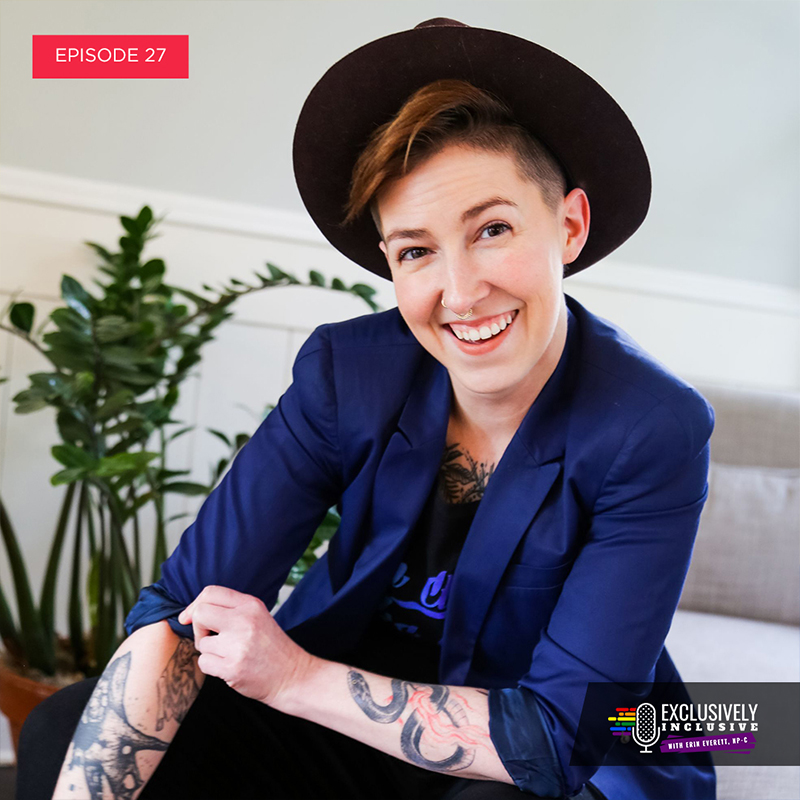
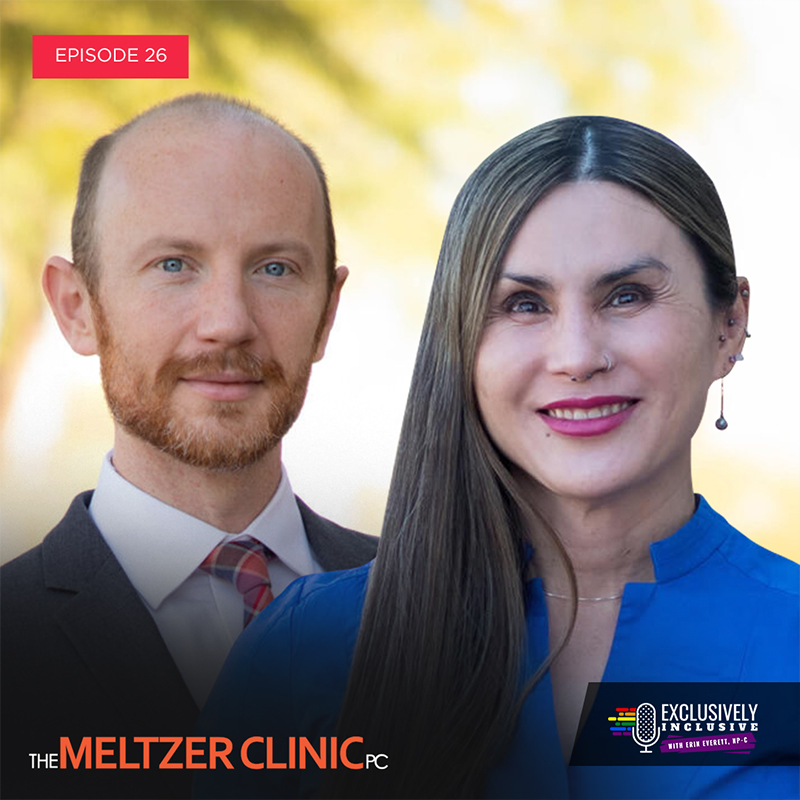
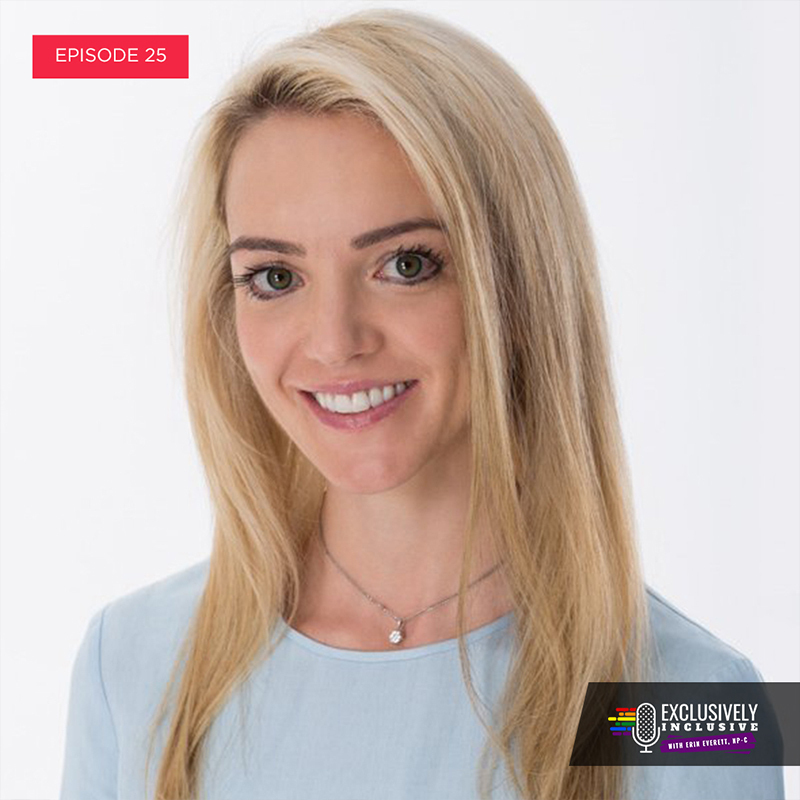
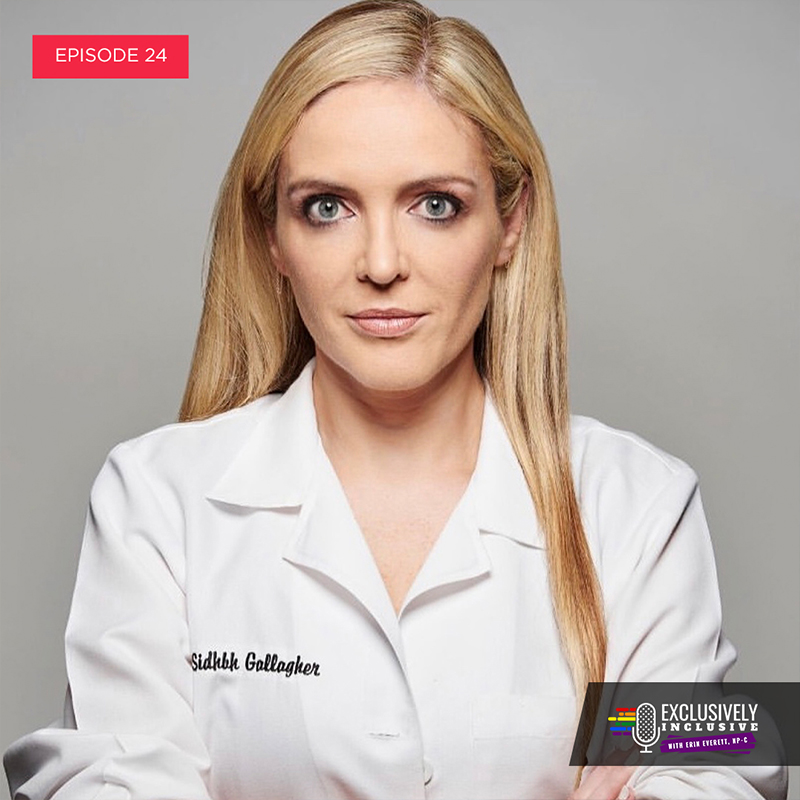
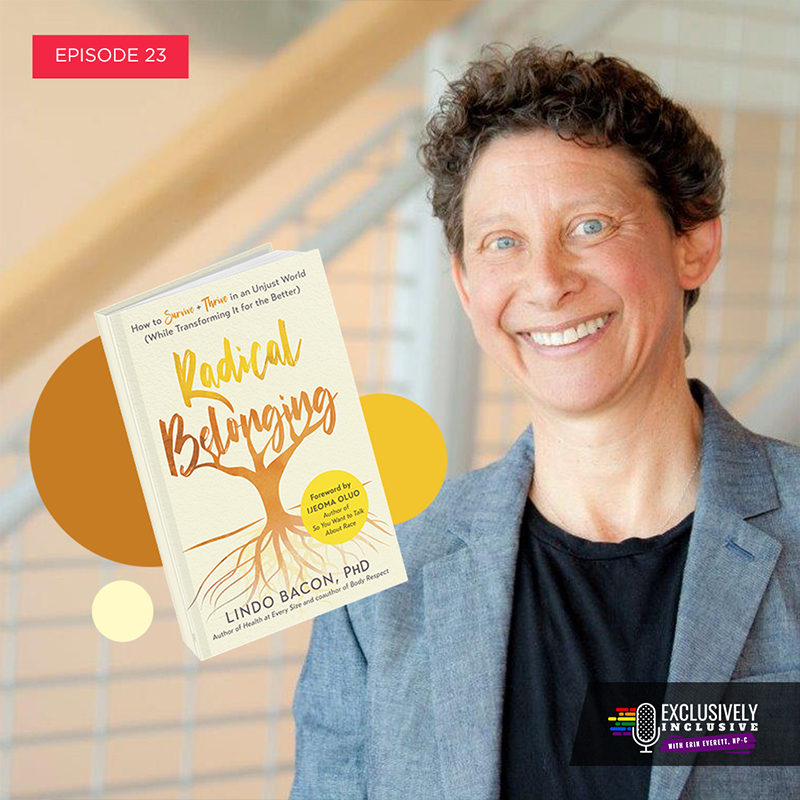
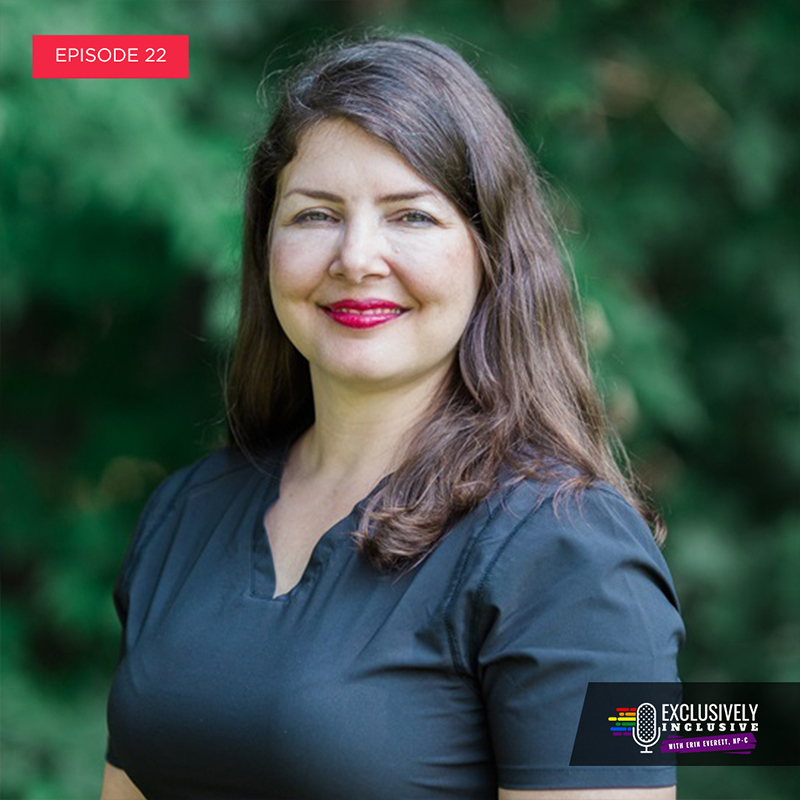
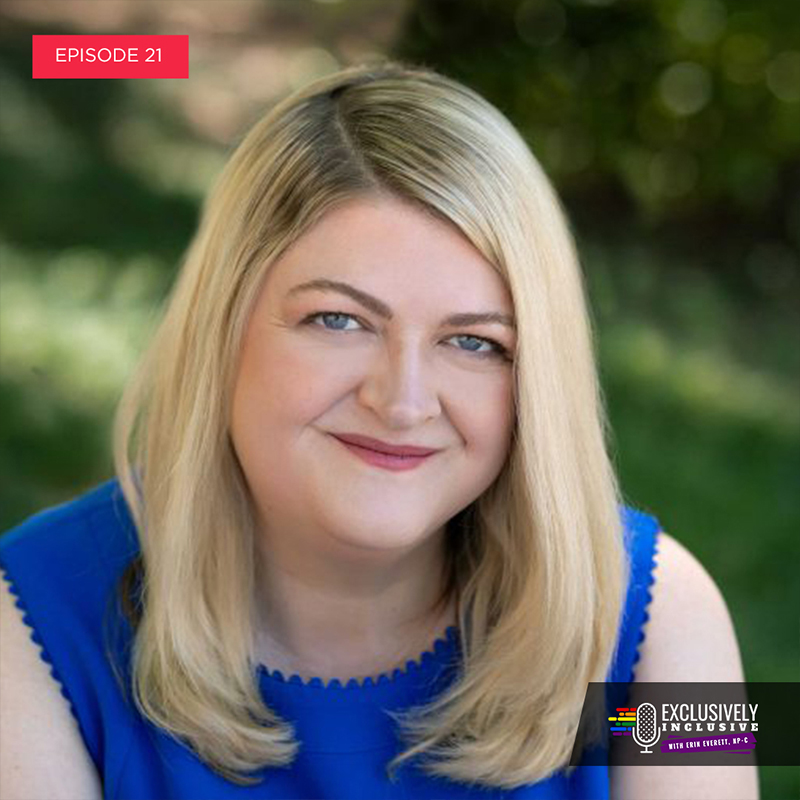
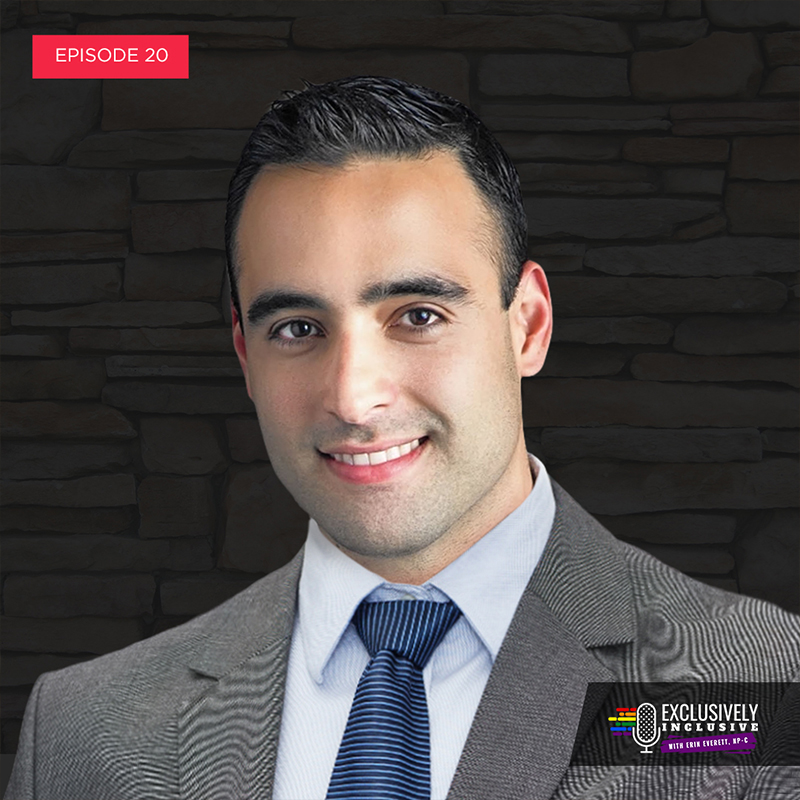
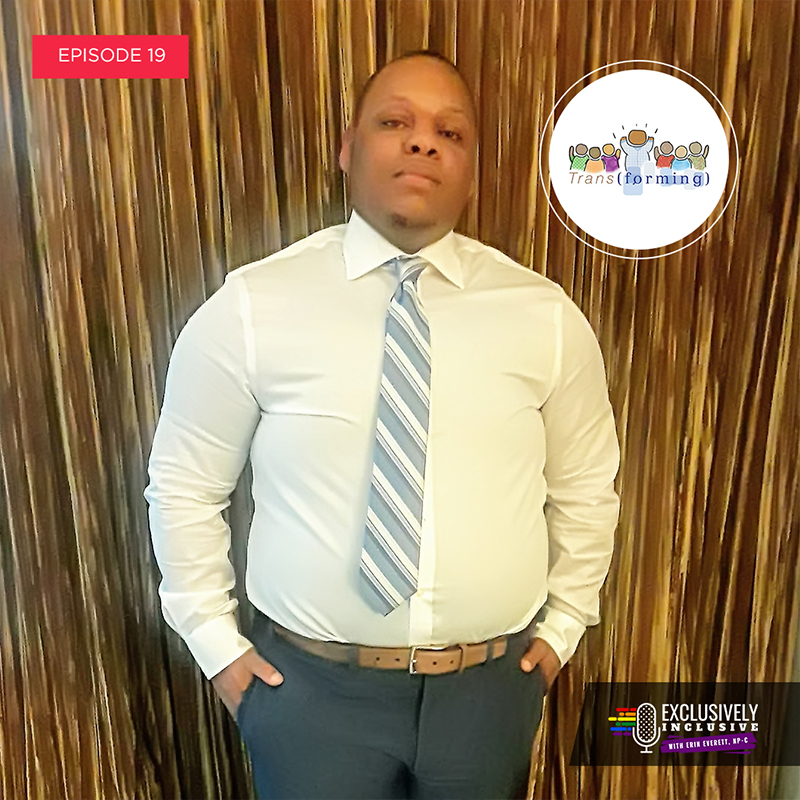
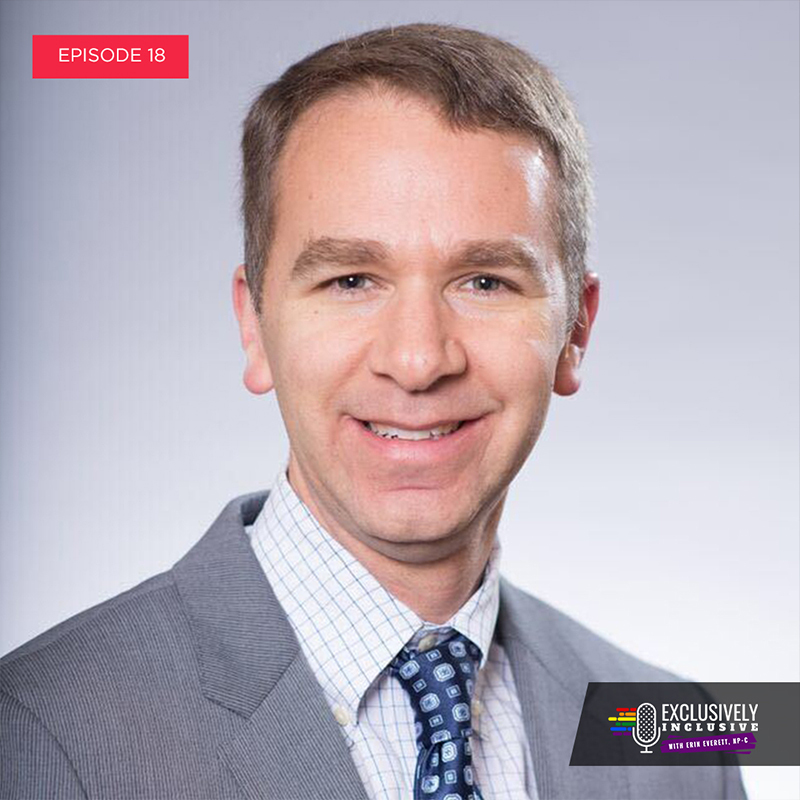
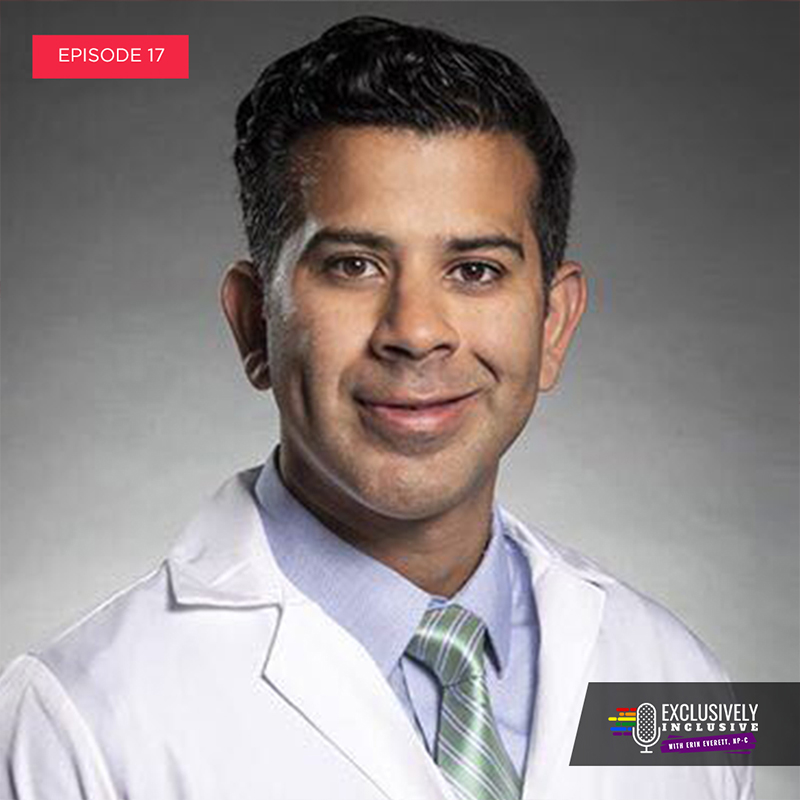
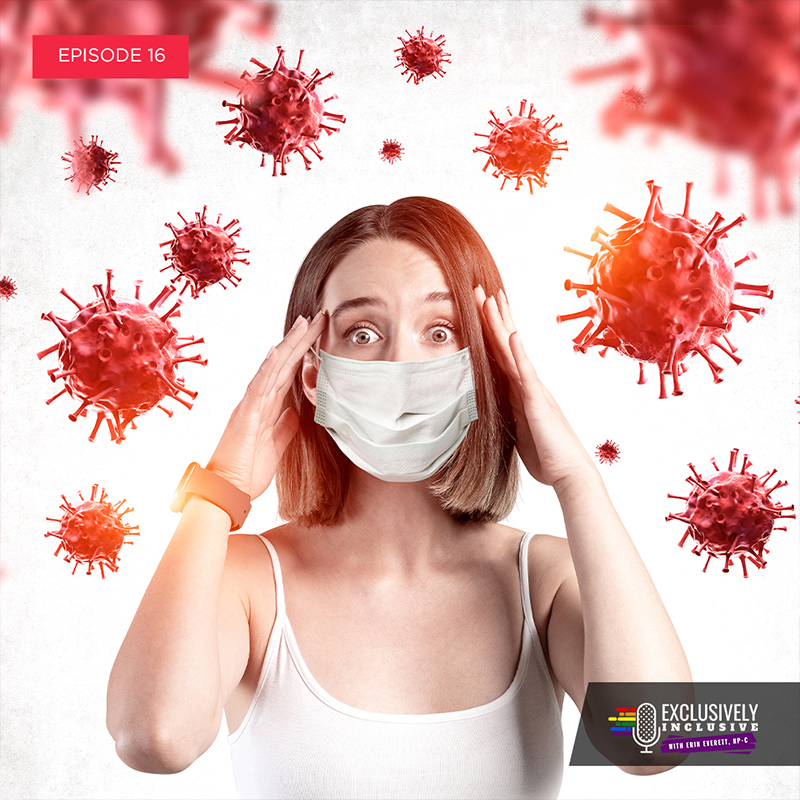
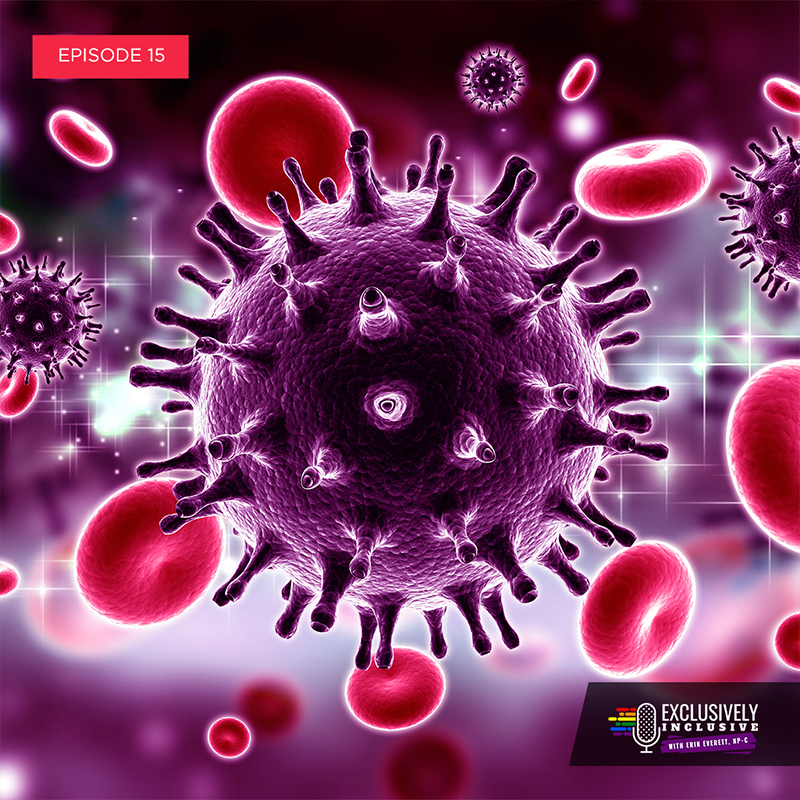
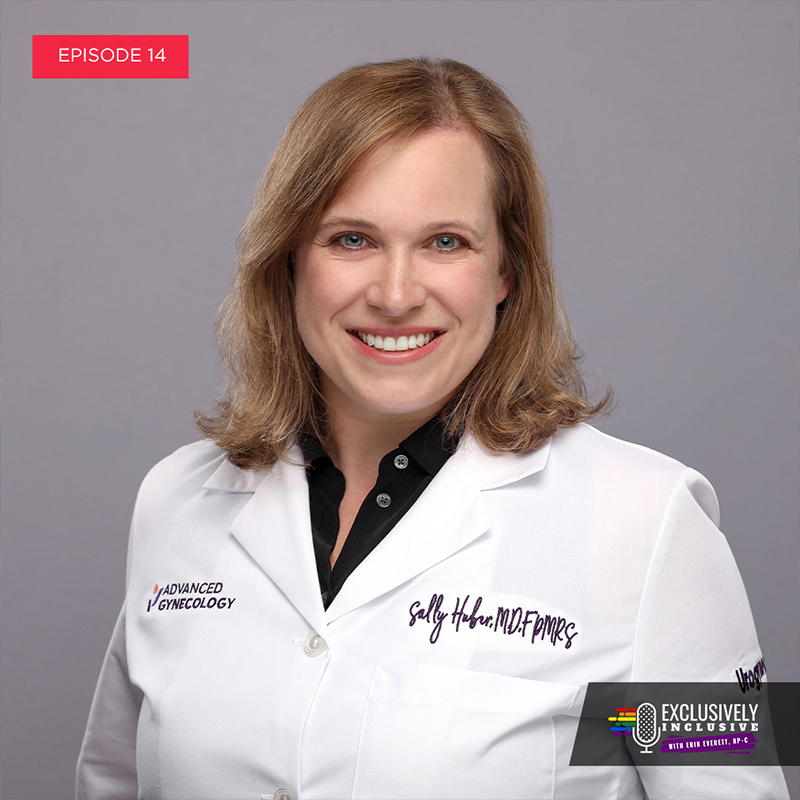
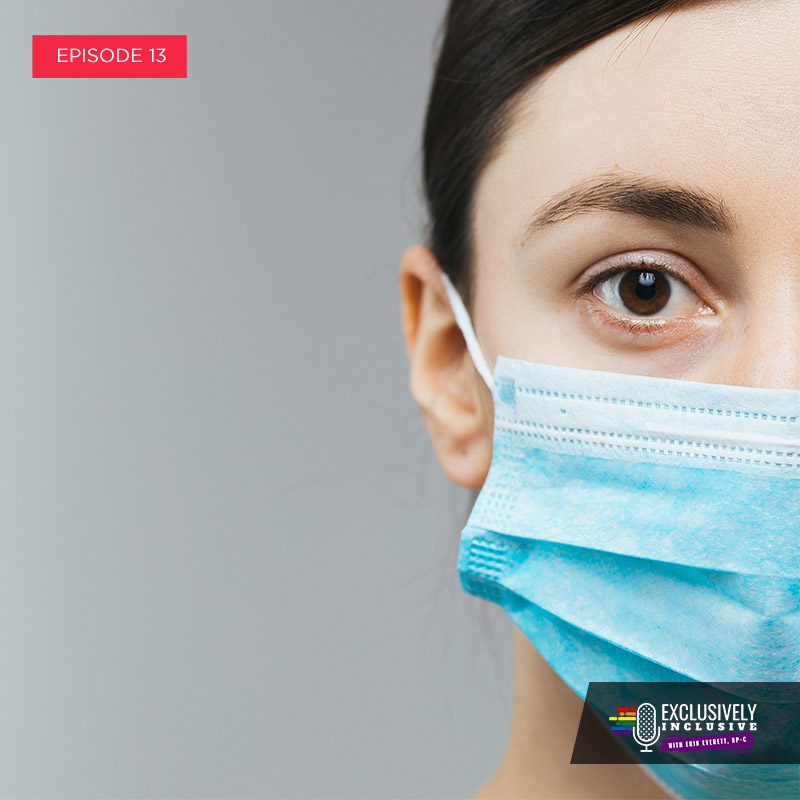
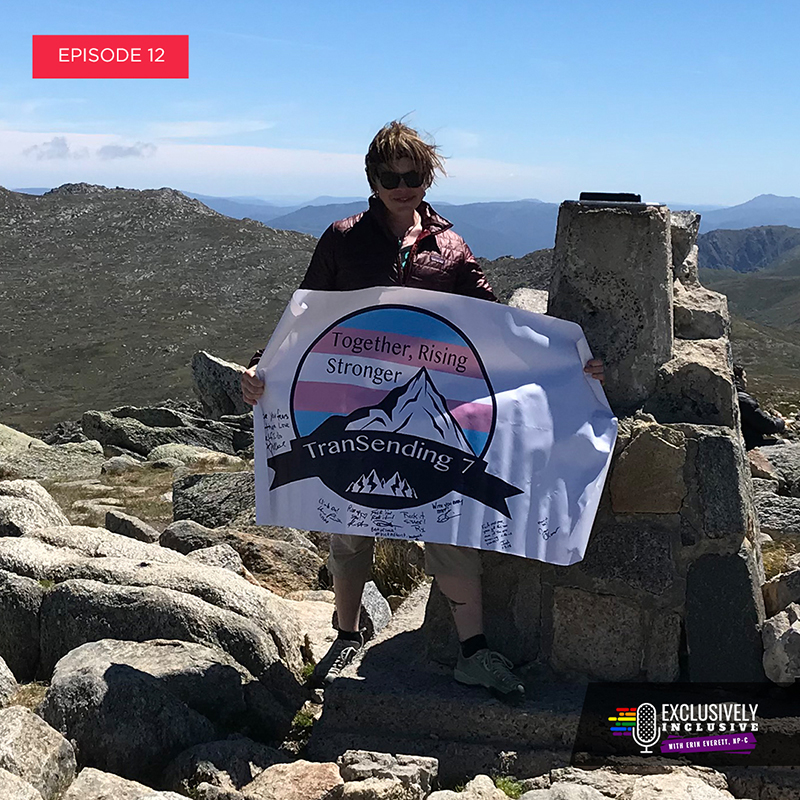

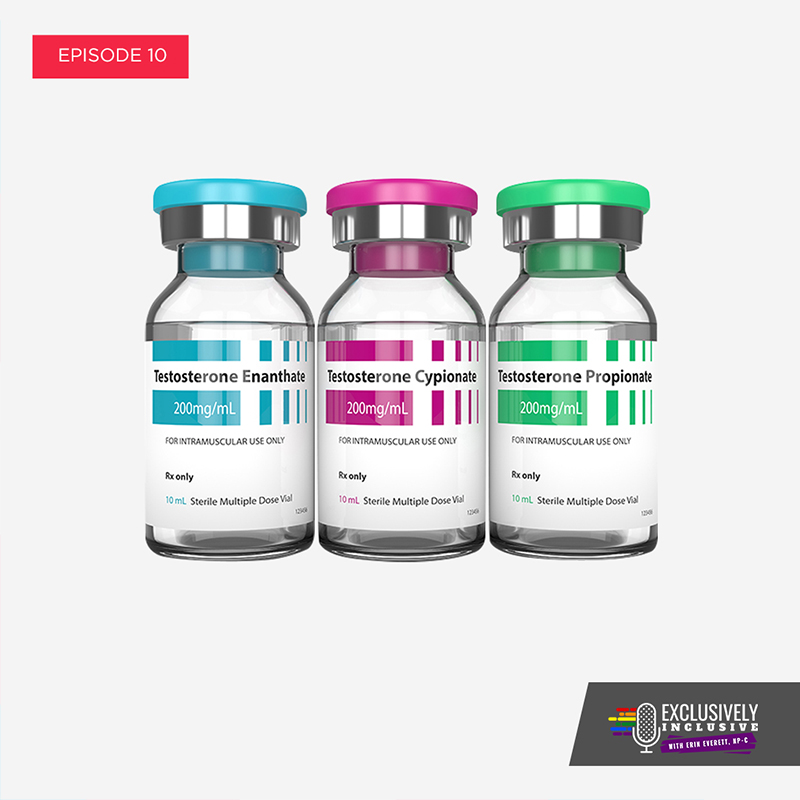
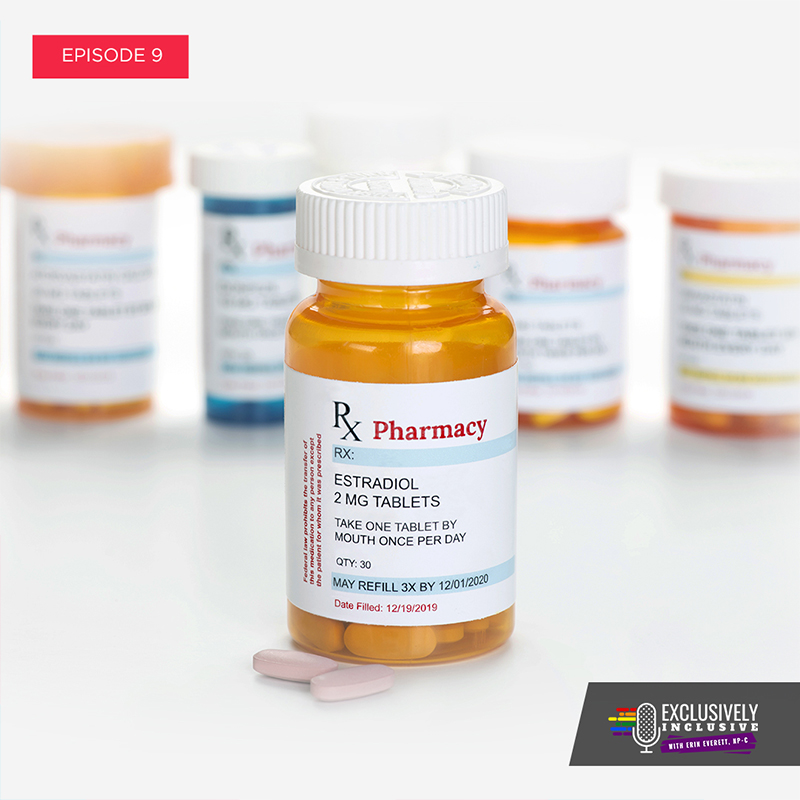
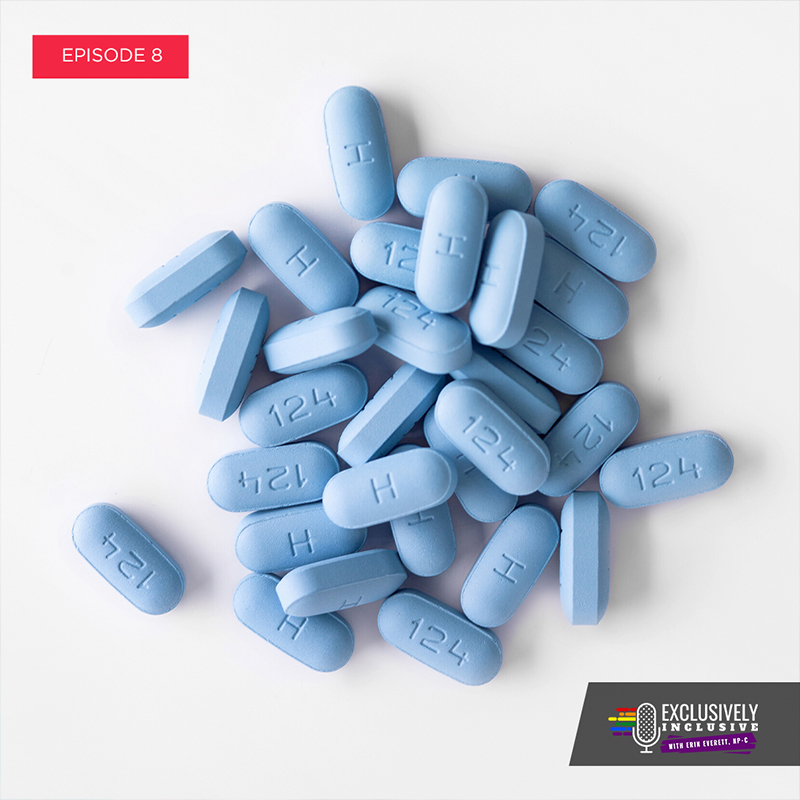
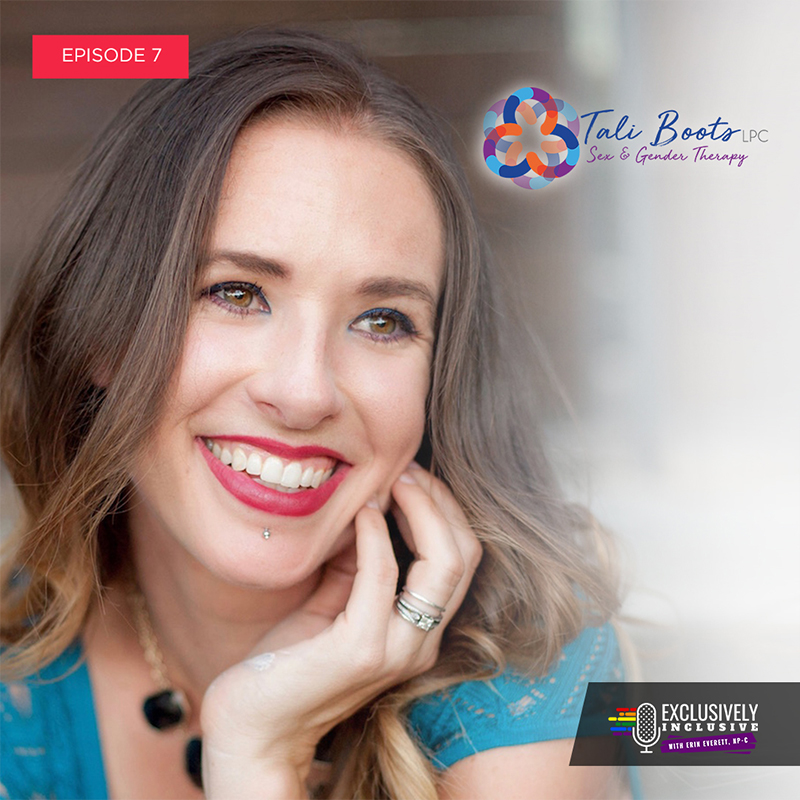
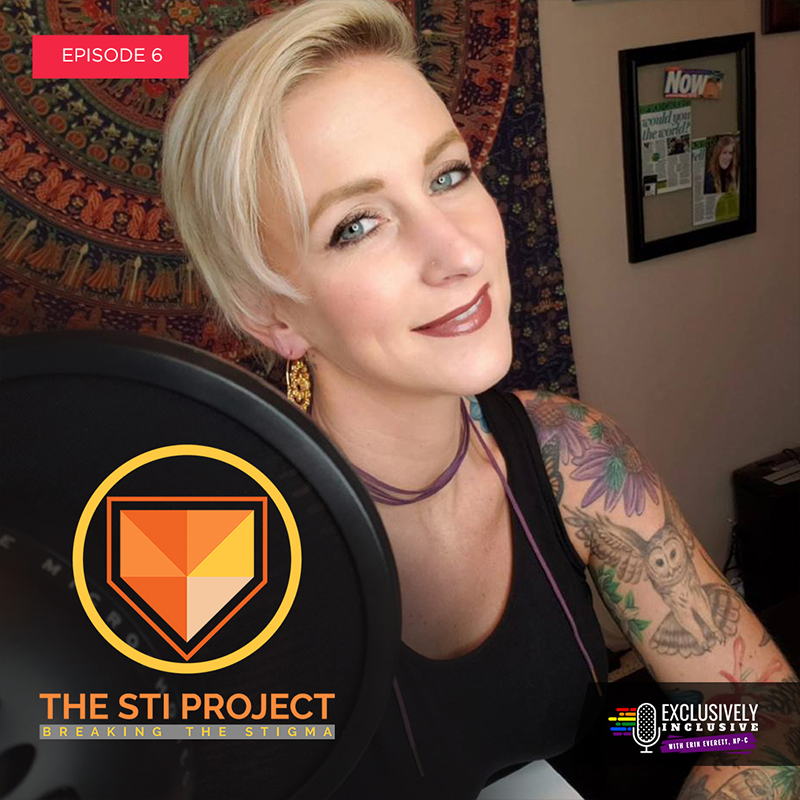
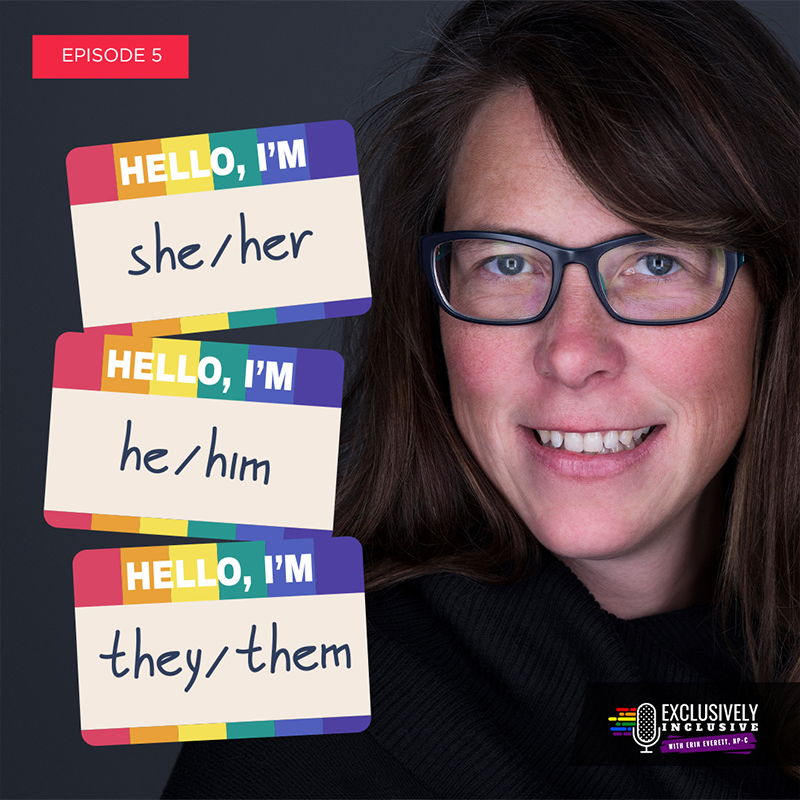
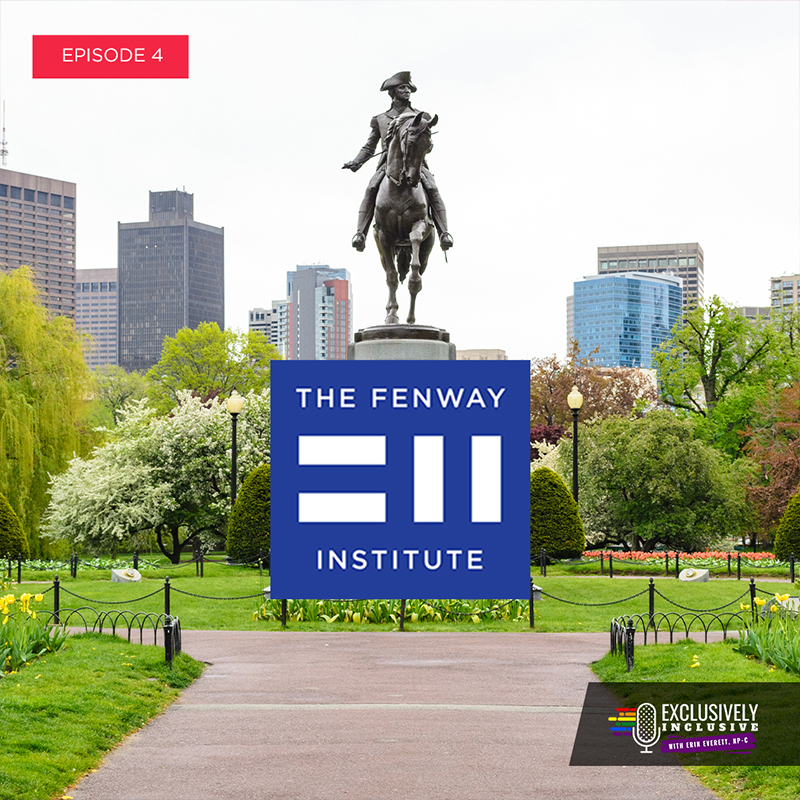
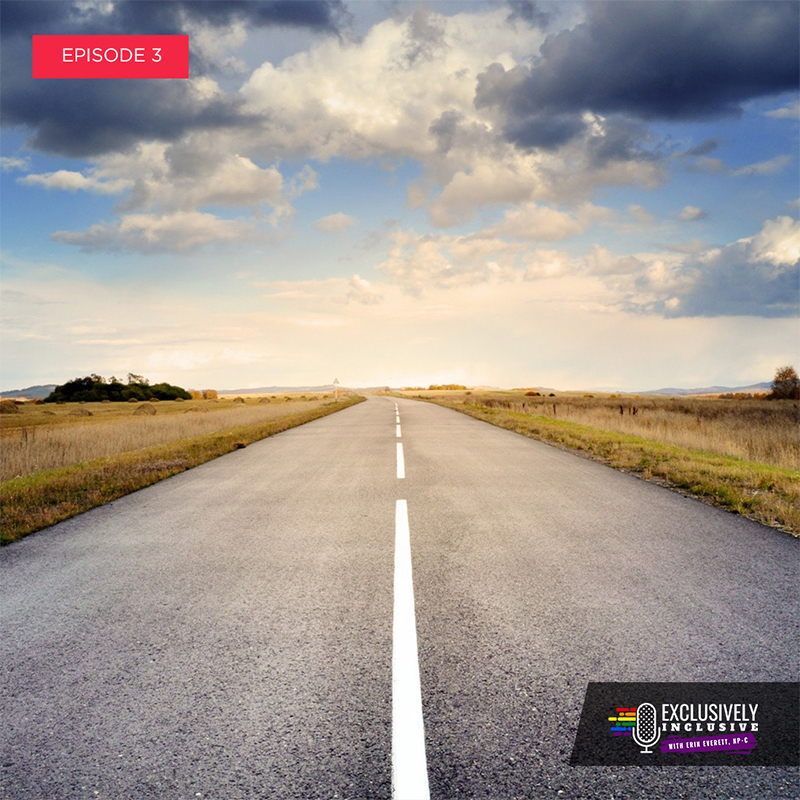
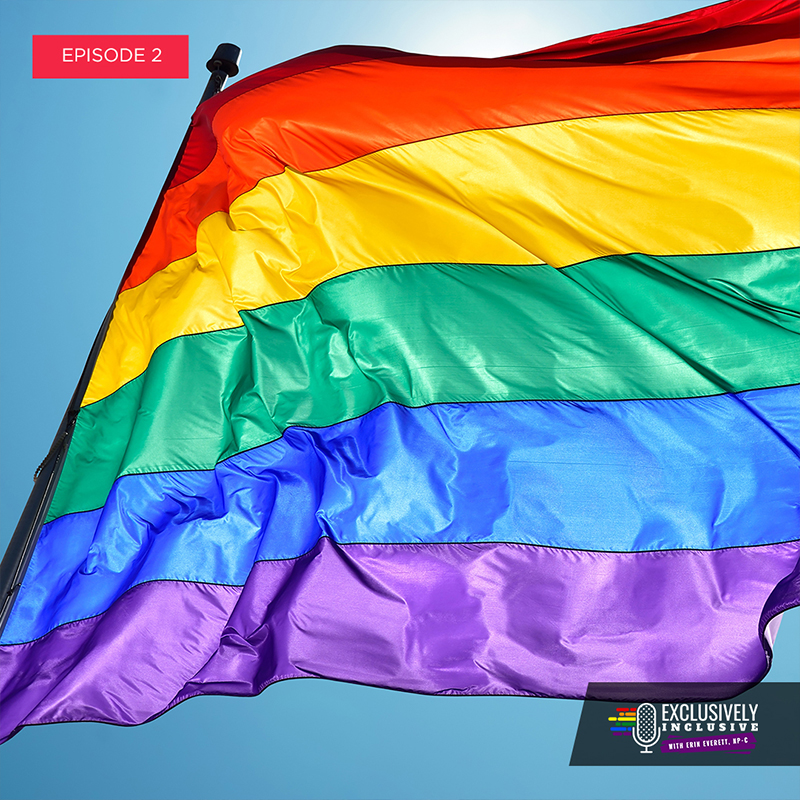
Thank you so much, Erin, for making this podcast. It is much needed information. And congrats on your launch!
Thank you so much for the support, Sherri! I hope you’re doing well!